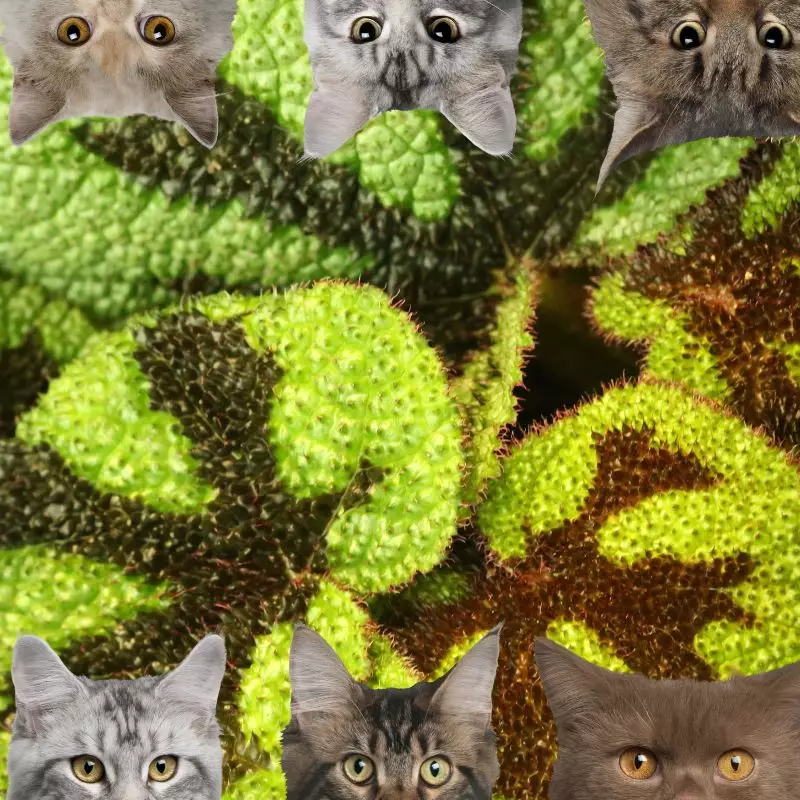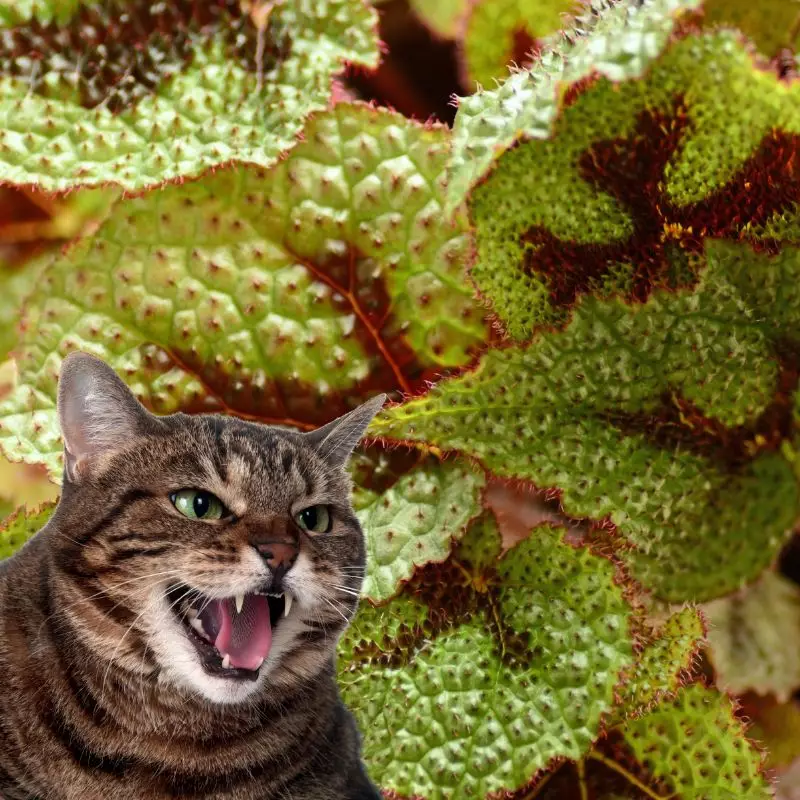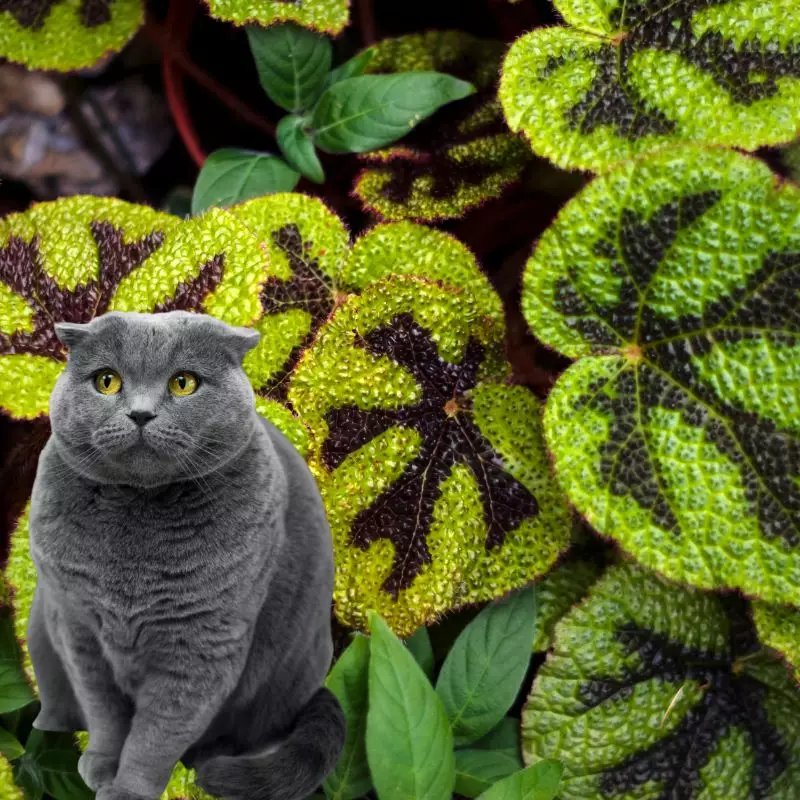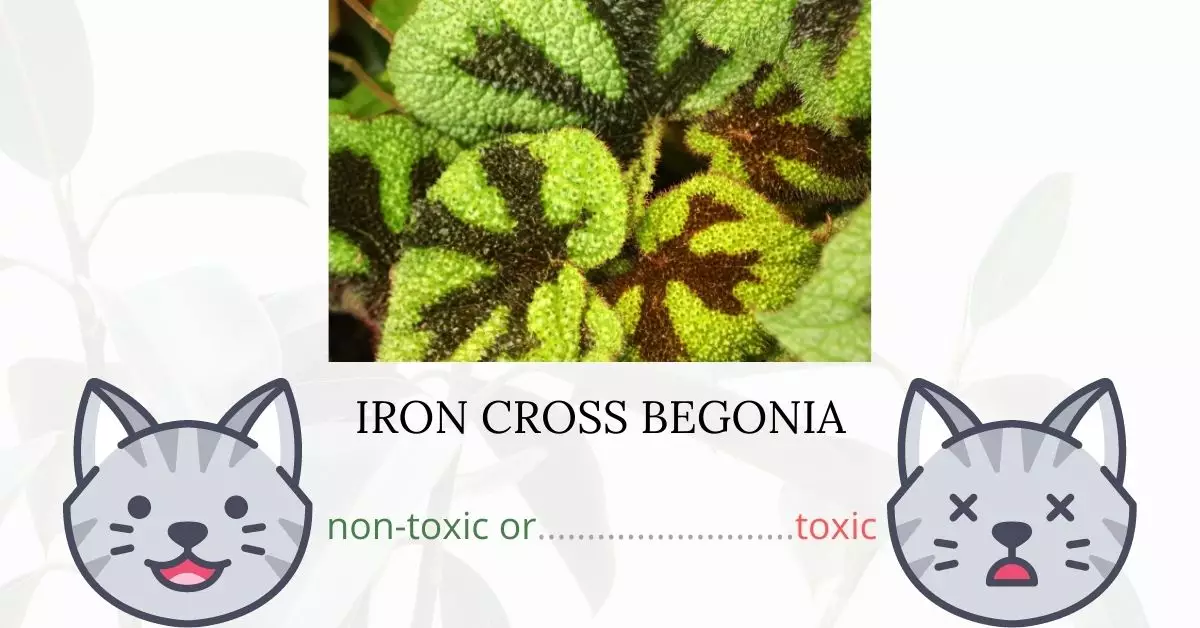Yes, Iron Cross Begonia is toxic to cats. This plant contains calcium oxalates, which pose a risk to our feline friends. If ingested by a cat, the oxalate crystals can cause discomfort and potentially harm their digestive system. When consumed in significant amounts, it may lead to severe complications such as liver failure, which can be life-threatening.
This article was written in collaboration with a team of experienced DVMs (doctors of veterinary medicine). Their expertise has played a crucial role in ensuring the accuracy and reliability of the information provided here. We have also cross-referenced our findings with high-authority websites such as ASPCA and PetMD to ensure that we offer the most comprehensive and up-to-date information regarding the effects of the Iron Cross Begonia on cats.
Clinical Signs of Iron Cross Begonia Poisoning in Cats

Iron Cross Begonia contains calcium oxalates, which, when ingested, can lead to a range of clinical symptoms in cats. Understanding these signs and the underlying reasons can help cat owners respond promptly and seek medical intervention.
- Dehydration: This occurs because the cat might drool excessively due to the irritation caused by the oxalate crystals, leading to fluid loss. Additionally, the discomfort might cause the cat to drink less water.
- Kidney failure: The oxalate crystals can be harmful to the kidneys, potentially leading to kidney dysfunction or failure if not addressed in time.
- Sores in the mouth: The sharp oxalate crystals can embed themselves in the soft tissues of the mouth, causing sores or ulcers.
- Hypersalivation: The irritation caused by the plant leads to excessive drooling or salivation as the cat’s body tries to dilute and expel the irritant.
- Vomiting: This is a natural reflex action when the cat’s body detects harmful substances. The cat might vomit in an attempt to remove the ingested plant material and the irritating oxalate crystals.
- Swelling of the mouth and tongue: The embedded oxalate crystals can cause inflammation, leading to noticeable swelling in the cat’s mouth and tongue.
- Loss of appetite: Due to the discomfort in the mouth and the overall feeling of malaise, the cat might refuse to eat.
Should you observe any of these symptoms in your cat after contact with Iron Cross Begonia, it’s crucial to consult a veterinarian immediately.
First Aid and Treatment of Iron Cross Begonia Poisoning in Cats

Generally, iron cross begonia symptoms disappear around 48 hours. The veterinarian will most likely manage your cat’s symptoms by administering intravenous fluids and giving medications such as anti-inflammatories and stomach protectants. The vet may also prescribe other medicines and perform procedures depending on the extremities of your cat’s condition.
Recovery from Iron Cross Begonia Poisoning in Cats

A cat with a severe case of iron cross begonia poisoning usually recovers quickly, with no need for additional visits to the veterinarian. The vet may decide to temporarily place a feeding tube if the cat’s esophagus has been seriously injured. This will save your cat from straining wounded digestive tract tissues by swallowing, enabling them to recuperate on a special diet instead.
Prevention of Iron Cross Begonia Poisoning in Cats
It is best to avoid growing begonias indoors and even in your gardens and yards. Keep your home cat-friendly by planting non-toxic plants as an alternative. You can also restrict your cat’s outdoor access to prevent him or her from straying far from your house.
If you love plants but have cats at home, check out these lists:





